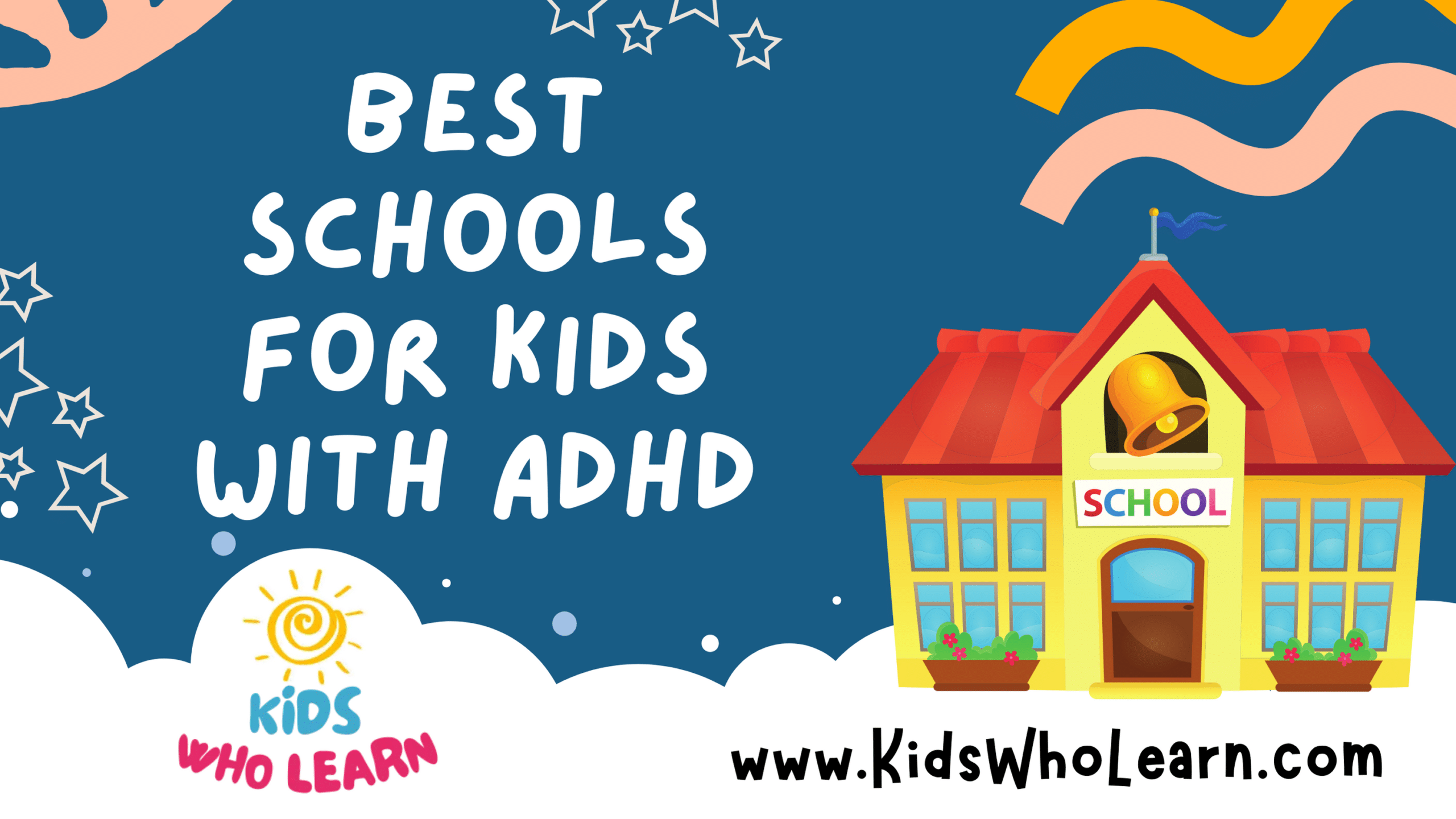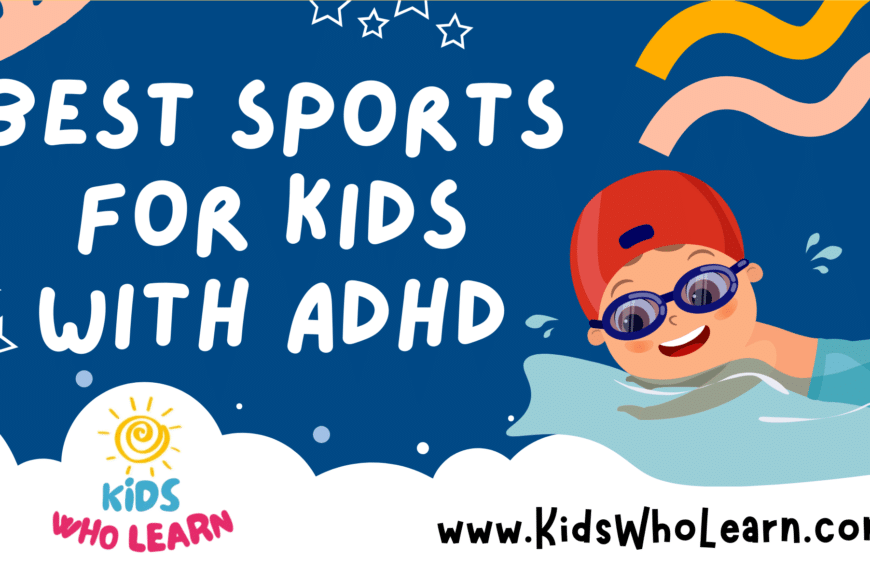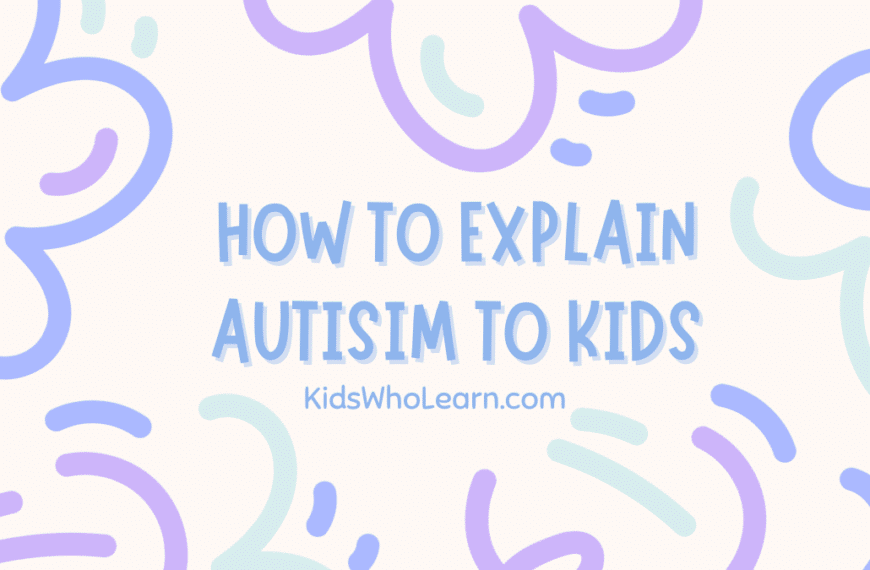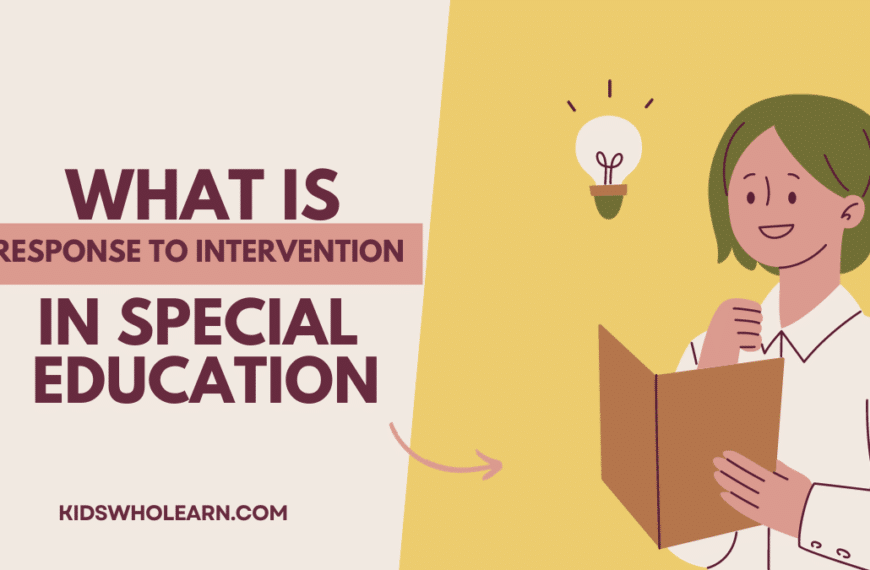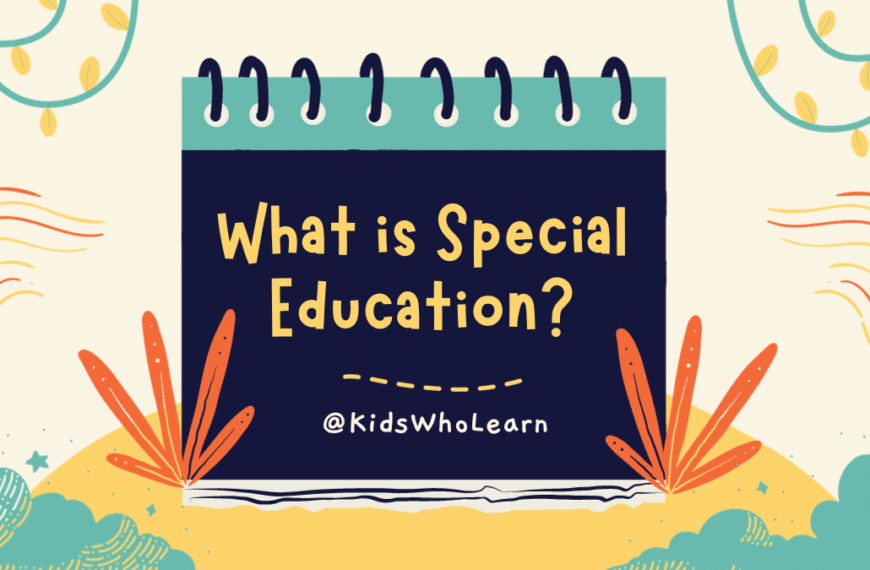Selecting an educational institution for a child with ADHD requires a nuanced understanding of the child’s unique learning needs and the support systems put in place by the school. Attention-Deficit/Hyperactivity Disorder (ADHD) affects children’s focus, impulsiveness, and activity levels. These challenges may make traditional learning environments difficult for them to navigate. However, some schools are well-equipped to address these needs, providing specialized programs, tailored teaching strategies, and supportive environments that can significantly improve an ADHD student’s educational experience.
To ensure a child with ADHD thrives academically, it’s crucial to consider various factors, such as the school’s understanding of ADHD, its approach to teaching, and the resources it offers for support and accommodation. The right school can make all the difference, leveraging a child’s ADHD traits like hyper-focus and creativity as strengths rather than impediments. Financial considerations are also part of the decision-making process, as some programs or schools might require additional resources. Accessibility to the right resources and legal information is also essential, as laws like the Individuals with Disabilities Education Act (IDEA) assure certain educational rights for students with disabilities.
Key Takeaways
- Effective schools for children with ADHD offer specialized support and tailored teaching strategies.
- Understanding educational rights ensures students with ADHD receive appropriate accommodations.
- Selecting the right school involves balancing support needs with financial and resource considerations.
Understanding ADHD in Children
Attention Deficit Hyperactivity Disorder (ADHD) is a neurodevelopmental condition often identified in childhood. It affects your child’s ability to maintain focus, control behavior, and navigate learning challenges.
Diagnosing ADHD
ADHD diagnosis involves assessing behavior over time in multiple settings. Health professionals look for consistent patterns of inattention, hyperactivity, and impulsivity that interfere with daily activities. Diagnosis can include:
- Interviews: Gathering information from parents, teachers, and others.
- Checklists/Rating Scales: Tools like the Vanderbilt Assessment Scale help quantify ADHD symptoms.
- Observation: Professionals may observe behavior in different contexts.
- Medical Evaluation: To rule out other causes for symptoms.
ADHD vs. LD and Comorbid Conditions
ADHD is distinct from Learning Disabilities (LD), although they can co-occur. While ADHD impacts focus and behavior, LD affects specific learning skills like reading or math. Comorbid conditions, such as anxiety, often accompany ADHD and can complicate diagnosis and intervention. Understanding these overlaps is crucial for effective support.
Impact of ADHD on Learning and Development
Children with ADHD may face learning hurdles, including:
- Inattention: Difficulties maintaining focus on tasks or play.
- Hyperactivity: Excess movement that is not fitting to the setting.
- Impulsivity: Hasty actions without thought that can cause issues in learning environments.
However, individuals with ADHD also possess unique strengths:
- Creativity: Often highly imaginative and capable of out-of-the-box thinking.
- Energy: Able to work on tasks with passion when they are engaged.
- Resilience: Frequently adapting to new challenges and scenarios.
Recognizing the diverse effects of ADHD on your child’s development is essential for tailored educational strategies.
Educational Rights and Legislation
Children with ADHD have specific educational rights that ensure they receive an appropriate education tailored to their individual needs. These rights are protected under federal law through various legislations and plans.
IDEA and the 504 Plan
Individuals with Disabilities Education Act (IDEA) mandates that public schools create an Individualized Education Program (IEP) for every child with a disability. If your child has ADHD and qualifies under IDEA, they have the right to special education services.
- Eligibility: To be eligible, your child’s ADHD must affect educational performance and require special education.
- Services: An IEP includes specific educational goals, accommodations, and potentially, related services like counseling or speech therapy.
A 504 Plan, under Section 504 of the Rehabilitation Act, is designed for students who don’t qualify for an IEP but still require accommodations.
- Definition: Section 504 defines a disability more broadly than IDEA, so more children with ADHD may qualify.
- Accommodations: They can range from adjusted seat assignments to extended time on tests.
Ensuring Legal Accommodations
You have the power to ensure your child receives the accommodations they need to succeed.
- Documentation: Always have your child’s diagnosis and recommendations from health professionals documented.
- Communication: Regularly communicate with the school to make sure accommodations are being properly implemented.
If a school fails to provide the necessary accommodations, it can be held legally accountable.
Parental Advocacy in Education
Your role as a parent advocate is critical in navigating educational rights and obtaining adequate support for your child.
- Know Your Rights: Familiarize yourself with IDEA and Section 504 to understand what schools are required to provide.
- Meetings: Attend all meetings about your child’s educational plan and be prepared to discuss their needs.
Collaboration: Working with teachers and administrators as partners helps build a supportive environment for your child.
School Types for ADHD Students
When choosing a school for your child with ADHD, you have several options, each with unique benefits tailored to support their learning experience. Your choice will significantly impact their academic success and emotional well-being.
Public Schools and Charter Schools
Public Schools: You may find public schools offering Individualized Education Programs (IEP) or 504 Plans to support students with ADHD. These legally binding documents ensure your child receives accommodations tailored to their specific needs.
- Common Accommodations:
- Extra time on tests
- Reduced homework or essay requirements
- Behavioral intervention plans
- Note-taking assistance
Charter Schools: These are independently run schools funded by public money. Some charter schools have a focus on special education or inclusive practices that can be beneficial for ADHD students.
- Key Features:
- Innovative teaching approaches
- Smaller class sizes
Private and Alternative Schools
Private Schools: Typically, these schools have more resources to provide a supportive environment for children with ADHD, including more staff and specialized programs.
- Benefits:
- Individualized attention
- Specialized curriculums
Alternative Schools: These schools often feature non-traditional educational models that may suit different learning styles, especially for students with ADHD who might struggle in conventional classrooms.
- Educational Approaches:
- Hands-on learning
- Experiential learning opportunities
Boarding Schools and ADHD Specialized Institutions
Boarding Schools: While most boarding schools tend to be traditional, some offer structured environments and routines that can help students with ADHD thrive.
- Support Structure:
- Consistent schedules
- On-site academic support
ADHD Specialized Institutions: These boarding schools are specifically designed for students with ADHD, providing comprehensive support, from modified teaching methods to therapy.
- Integral Elements:
- Highly trained staff
- Tailored behavior management strategies
Supportive Educational Structures
When selecting a school for children with ADHD, it’s crucial to consider how the educational structures in place can support their learning needs. Optimal structures include customized programs and attention to classroom dynamics.
Individualized Education Programs (IEP)
An Individualized Education Program (IEP) is a legal document developed for each public school child who qualifies for special education. The IEP outlines specific educational goals tailored to your child’s unique needs and must be followed by all teachers. It includes:
- Support Services: Counseling, speech therapy, and occupational therapy.
- Accommodations: Extra time on tests, different test formats, and preferential seating.
- Goals and Evaluations: Clearly defined educational objectives and regular progress assessments.
Student-to-Teacher Ratio and Classroom Size
A low student-to-teacher ratio is beneficial because it:
- Allows individualized attention from teachers.
- Can lead to more effective management of ADHD-related behaviors.
Classroom size can also influence your child’s ability to focus and teachers’ capacity to provide support. Look for classes with fewer students, as a smaller group size often results in a more controlled and attentive learning environment.
Curricular Adaptations and Support
Curriculum adaptations refer to changes in the standard curriculum to meet the needs of your child. This includes:
- Flexible Curriculum: Adjustments in teaching strategies to accommodate different learning styles.
- Support Personnel: Access to aides or resource room teachers.
- Using Bold or Italic text to emphasize important aspects of curriculum changes or support options can help your child comprehend material more effectively.
Selecting the Right School
Before choosing a school for a child with ADHD, you should consider specific factors that cater to their unique needs, reviewing how location, resources, school philosophy, and culture can impact their learning experience.
Factors in Choosing a School
When selecting a school, consider the curriculum and class size. Curricula that include hands-on, kinesthetic learning opportunities can greatly benefit students with ADHD. Look for schools in NC, CT, MA, HI, IL, ME, SC, VA, CO, or GA that emphasize differentiated instruction and offer individualized learning plans. Small class sizes can ensure that your child receives the attention they need.
The Role of Location and Resources
The location of a school is critical, as it relates to the availability of resources and support. Research local schools in your area to determine the scope of their special education programs and the availability of ADHD-specific resources. For example, schools in VA and MA are known for their robust special education resources, while those in HI and ME may have a more limited selection due to geographical constraints.
Evaluating School Philosophy and Culture
The school’s philosophy should align with your child’s needs. An inclusive philosophy that values diversity and offers support for all students, including those with ADHD, is essential. Furthermore, a positive school atmosphere that fosters a sense of belonging can make a significant difference. Be sure to visit the schools, if possible, to get a feel for their culture and philosophy firsthand.
Financial Considerations
When exploring the best schools for children with ADHD, it’s crucial to have a firm grasp of the associated financial requirements. An understanding of the available fiscal resources can significantly influence your decision-making process.
Understanding the Costs of Education
The cost of education for children with ADHD can vary widely depending on the type of institution you consider for your child’s needs. Private schools that specialize in ADHD may charge higher tuition due to specialized resources and individualized attention. Public schools might not have the same level of specialized services, but additional costs can arise from tutoring, counseling, or therapy that your child might need.
- Public Schools: Generally free, but potential costs for additional support
- Private Schools: High tuition with potential extra fees
- Specialized ADHD Schools: Typically the highest tuition, reflecting specialized services
Scholarships and Financial Aid Options
Several scholarships and financial aid options are available to help mitigate the financial burden of schooling for a child with ADHD. These can range from federal grants to private scholarships specifically aimed at students with learning disabilities.
- Federal Aid: Research if your child qualifies for Individuals with Disabilities Education Act (IDEA) funds.
- Private Scholarships: Organizations may offer funds for students with ADHD.
- School-Based Aid: Some institutions provide need-based or merit-based scholarships that can reduce tuition costs.
It’s essential to conduct your research on potential financial aid opportunities early to ensure you have adequate time to apply and secure any available funding.
Approaches to Learning and Support
To effectively support children with ADHD, educational institutions employ varied approaches tailored to accommodate learning differences and bolster social skills. Your child’s educators play a critical role in providing these specialized supports.
Accommodative Teaching Methods
Teachers with expertise in ADHD understand that a one-size-fits-all teaching method does not suit all students, especially those with ADHD. They implement individual learning plans with the following features:
- Flexible Seating Options: Giving students the choice to sit where they feel most comfortable, whether it be a quiet corner or a standing desk.
- Structured Breaks: Incorporating short, supervised breaks to help students with ADHD manage their energy levels.
By using accommodative teaching methods, educators can tailor instruction to play to a child’s strengths and support their unique learning needs.
Special Education Resources
Schools best equipped for children with ADHD offer a plethora of special education resources, characterized by:
- Specialized Support Staff: Inclusion of school psychologists, special education teachers, and aides who provide one-on-one or small group support.
- Resource Rooms: Spaces where children can receive additional help on assignments and learn coping strategies for classroom challenges.
With these resources, you can rest assured that your child has the extra support they need to thrive academically.
Extracurricular Activities and Social Skills Development
Social needs are a significant aspect of a child’s development, especially for a child with ADHD. Schools often offer:
- Skill-Building Groups: Clubs that help children develop organizational and social skills in a less formal environment than the classroom.
- Team Sports: Structured activities that improve children’s ability to work with others and build friendships while also helping with attention and focus.
Extracurricular activities are pivotal in fostering your child’s social skills and providing a balanced educational experience.
Parent and Student Resources
In finding the best educational environment for a child with ADHD, it’s crucial to have access to specialized services and community support. This section provides insights into valuable resources that cater to your child’s unique learning needs.
Educational Services and Consultants
For personalized guidance, educational consultants specialize in assisting families in selecting schools and programs tailored to children with ADHD. They evaluate your child’s educational needs and recommend appropriate schools and strategies.
| Service Type | What They Offer |
|---|---|
| Educational Consultants | Personalized assessments and school recommendation |
| Tutoring Services | One-on-one sessions focusing on your child’s specific challenges |
Support Groups and Community Resources
Joining support groups can be pivotal for both you and your child, offering a network of peer guidance and professional advice.
- Local ADHD Support Groups: Share experiences and strategies with other parents.
- Online Communities: Platforms like CHADD (Children and Adults with Attention-Deficit/Hyperactivity Disorder) provide resources and forums for discussion.
Information for Homeschooling ADHD Students
If you’re considering homeschooling, it’s essential to understand the educational materials and teaching strategies that can effectively support your child’s learning style.
- Curriculum Providers: Look for curricula with interactive, hands-on learning.
- Homeschooling Networks: Connect with other homeschooling families for shared experiences and tips.
Preparing for Future Success
To ensure your child with ADHD paves the way for future success, it’s vital to focus on educational transitions and the development of key skills.
Transitioning to High School and Beyond
As your child moves from middle to high school, it is critical to look for programs that support academic and social development. High schools with resources tailored for ADHD, such as structured schedules and the option for extra time on tests, can significantly boost your child’s ability to succeed. In addition to academic support, social skills workshops can enhance their self-esteem and ability to navigate high school life.
College Preparation and Vocational Training
When considering further education, explore colleges that offer comprehensive support services. Look for ones with:
- Learning disability programs that provide personalized academic coaching.
- Skills workshops focused on time management and organization.
- Accommodations like note-taking assistance and testing centers that grant extra time.
Vocational training, on the other hand, should integrate practical skills that align with your child’s strengths and interests. Vocational programs often lead to immediate employment opportunities, which can be a robust path to independence.
Building Independence and Self-Advocacy
Your child’s success hinges on their ability to become independent and to advocate for themselves, particularly when you are not around. Encourage them to:
- Identify their needs and effectively communicate them to educators and peers.
- Understand their legal rights to accommodations in educational settings.
- Utilize planners and apps designed to improve organization and time management.
By promoting these skills early, your child will be better equipped to face the demands of higher education and the workforce with confidence.
Frequently Asked Questions
Selecting the right school for your child with ADHD involves understanding specific needs and how different educational settings can meet them. Here’s what you should know.
What criteria should parents consider when selecting a school for their child with ADHD?
When choosing a school, consider the student-to-teacher ratio, the availability of individualized attention, and the school’s experience with ADHD. It’s crucial to find a setting where your child’s educational and social needs will be met with understanding and support.
How do specialized ADHD schools differ from traditional schools in supporting students with ADHD?
Specialized ADHD schools often have staff trained in ADHD and related learning differences. They provide tailored curricula and strategies such as movement breaks, hands-on learning, and flexible seating to help students focus and engage with their studies more effectively than traditional schools might.
What are the benefits of online schooling for children with ADHD?
Online schools can offer flexible scheduling and a comfortable learning environment, which can be beneficial for children with ADHD. The self-paced nature of many online programs allows students to take breaks when needed and to concentrate during their peak focus times.
Can charter schools provide a suitable environment for students with ADHD, and what should parents look for?
Charter schools with a focus on innovative education can be a good fit for students with ADHD. Look for charter schools that offer differentiated instruction, have smaller class sizes, and incorporate technology that aids learning and fosters engagement.
What accommodations and teaching strategies should parents expect from an elementary school for a child with ADHD?
Expect accommodations like preferred seating, extended time on tests, and reduced homework load. Teaching strategies could include the use of visual aids, interactive lessons, and consistent routines that provide a stable learning environment for your child.
For students with ADHD interested in engineering, what educational pathways and support structures are recommended?
Consider schools that offer STEM programs with project-based learning, as this can be engaging for students with ADHD. Support structures may include mentoring, tutoring, and the use of technology that aligns with their learning styles. It’s important to have access to professionals who can provide guidance on managing ADHD within the challenging field of engineering.

